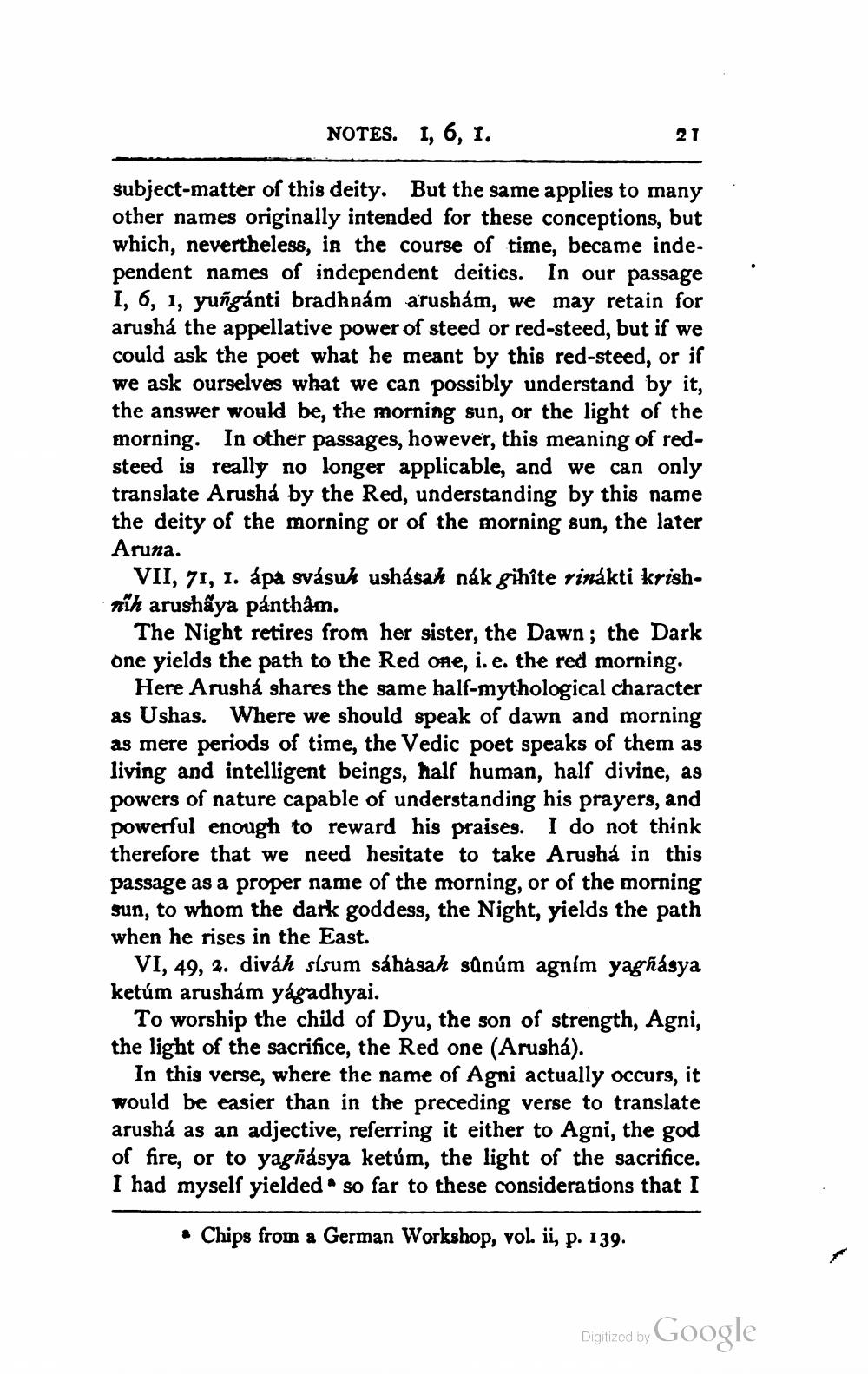________________
NOTES.
21
subject matter of this deity. But the same applies to many other names originally intended for these conceptions, but which, nevertheless, in the course of time, became inde. pendent names of independent deities. In our passage I, 6, 1, yungánti bradhnam arushám, we may retain for arusha the appellative power of steed or red-steed, but if we could ask the poet what he meant by this red-steed, or if we ask ourselves what we can possibly understand by it, the answer would be, the morning sun, or the light of the morning. In other passages, however, this meaning of redsteed is really no longer applicable, and we can only translate Arusha by the Red, understanding by this name the deity of the morning or of the morning sun, the later Aruna.
VII, 71, 1. ápa svásuk ushásah nák gihîte rinákti krishnih arushấya pánthåm.
The Night retires from her sister, the Dawn; the Dark one yields the path to the Red one, i.e. the red morning.
Here Arusha shares the same half-mythological character as Ushas. Where we should speak of dawn and morning as mere periods of time, the Vedic poet speaks of them as living and intelligent beings, half human, half divine, as powers of nature capable of understanding his prayers, and powerful enough to reward his praises. I do not think therefore that we need hesitate to take Arusha in this passage as a proper name of the morning, or of the morning sun, to whom the dark goddess, the Night, yields the path when he rises in the East.
VI, 49, 2. diváh sísum sáhasah sơnúm agním yagñasya ketúm arushám yagadhyai.
To worship the child of Dyu, the son of strength, Agni, the light of the sacrifice, the Red one (Arusha).
In this verse, where the name of Agni actually occurs, it would be easier than in the preceding verse to translate arusha as an adjective, referring it either to Agni, the god of fire, or to yagñásya ketúm, the light of the sacrifice. I had myself yielded so far to these considerations that I
• Chips from a German Workshop, vol. ii, p. 139.
Digized by Google




